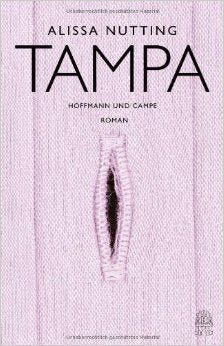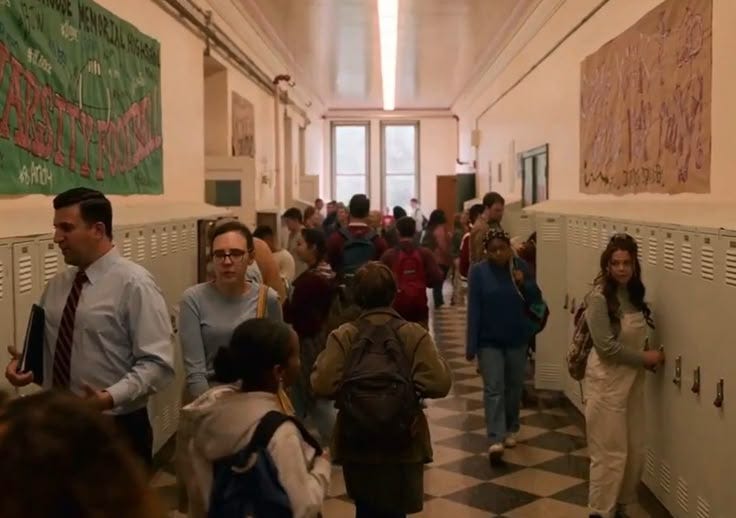Running to Red will always be a free publication, but if you’d like to support me and my work, please consider a paid subscription.
Trigger Warning for child sexual abuse and discussions of pedophilia. Also, spoiler alert for the whole of the novel.
Tampa by Alissa Nutting was published in 2013 and is currently being advertised on Pinterest as a “unhinged girlie” book, akin to My Year of Rest and Relaxation. I went in blind, expecting to be a tad disturbed or disgusted, but I was not prepared for the content served.
In Alissa Nutting’s novel Tampa, Celeste Price, a smoldering 26-year-old middle-school teacher in Florida, unrepentantly recounts her elaborate and sociopathically determined seduction of a 14-year-old student. - Goodread’s summary
Tampa is not for the faint of heart. Celeste’s internal monologues are raw and uncensored. In the vein of Nabokov, Celeste is fixated on her first love, and more specifically her first sexual experience as a teenager. She states that nothing can compare to the awkward and scrawny adolescent boy attempting to seduce and lose his virginity. Celeste becomes sexually stunted, and attracted, to adolescent boys, almost exactly mirroring Humbert Humbert in Lolita. Nutting takes the concept of Lolita and mixes it with an exploration of female pedophilia and how male sexual “alpha-ism” operates — this idea that a boy’s sexual value is tied to his experience, and that losing one’s virginity as early as possible makes him superior to his peers. Celeste exploits this, painting herself as a “slutty teacher,” an “office (classroom?) siren,” who helps these boys achieve an imagined sexual milestone The trope directly reflects the way society has historically viewed female teachers who engage in statutory rape as less dangerous than male abusers.
Nutting does not hold back as Celeste is masturbating to child sexual material (CMS) and congratulating herself on her new high school teaching role — which she states she explicitly took for easy access to her victims — within the first two chapters.
I was finally set with a job that would allow me to go back to eighth grade permanently.
Celeste is married to a well off and attractive cop — another calculated move to protect herself from inevitable capture. Their complicated and unpassionate sex life only serves as a juxtaposition for the (heavily) explicit sex scenes Celeste shares with 14-year-old Jack. The addition of this plot point brilliantly serves as an example of the Gone Girl-esque levels of depravity and long game planning that fully cements Celeste as an extremely dangerous predator.
According to Marie Claire, one of the most disturbing aspects of Tampa is how it reveals the cracks in our collective moral judgment. The article points out that when cases of female sexual predators arise in real life, media coverage often frames them differently than male offenders, focusing on their attractiveness or perceived emotional instability rather than their predatory behavior. Nutting captures this double standard perfectly, portraying Celeste as someone who effortlessly manipulates the system, knowing that her gender and beauty afford her a level of protection. The novel forces readers to acknowledge these biases and consider how deeply ingrained they are in societal narratives about sex and power.
“Your Honor,” my attorney began, “my client’s looks would make her a particularly susceptible target for sexual violence and harassment in prison. She’s too beautiful to be in the general population of jail.”
The controversy surrounding Tampa is unavoidable. The Independent commends its boldness in tackling female predation without softening the edges. What’s Hot Blog criticizes the book for its lack of character development, while HuffPost acknowledges its literary merit but questions whether it ultimately sensationalizes abuse. Meanwhile, Book Coffee Happy goes so far as to label it unredeemable, calling for readers to avoid it altogether.
The most insidious part I found? The previously mentioned graphic sex scenes rivaling those in Booktok’s favorite reads. Nutting writes of Celeste masturbating, pinching her nipples, fingering herself, having oral, anal, and vaginal sex loudly and roughly.
I reached up my shirt and pinched my nipples as hard as I could, my fingernails digging in until my eyes began to water.
Jack could sneak me into his window at night and we could fuck on the floor with clean socks stuffed in our mouths to muffle the sound.
freckles of blown dirt sticking to the sweat of his shirtless torso, his mesh basketball shorts slung down below the boxers on his hips
Now, maybe I am just conditioned from reading a lot of smut, or I’m incapable of imagining a sex-having-male without them being an adult, but I am ashamed to admit the book made me horny. And I argue that is one of the main points of the book: not to just make you mentally uncomfortable, but physically as well. Much like real victims of assault cannot help their bodies reactions (ex. men getting erections during assaults) neither could I while reading these scenes. Nutting writes the scenes for paragraphs on end, forcing the reader to sit in the horrors of not only what is happening on the page, but also in their pants. It brings the reader further into the narrative, literally engaging the body, in a way I’ve only experienced in the romantasy section (might be why romantasy is a multi-million-dollar subgenre).
And yet, despite—or perhaps because of—its controversy, Tampa forces a conversation about gender and power dynamics that few books dare to touch. If Celeste were a man, would we see as many readers brushing off her crimes as a twisted fantasy? Would the novel have been received differently if it had been written by a male author (which you could arguably answer with the constant critic of Lolita)? And could a man write the intensive sex scenes designed to conjure arousal? These questions linger long after the final page, making Tampa an unsettling, but undeniably important, work of contemporary fiction.
So, is Tampa a masterpiece or a piece of shock value trash? The answer depends on the reader. But one thing is certain: it demands to be talked about. And in a literary landscape that often shies away from the grotesque and evil when it comes to women, perhaps that’s exactly the point.
Sources:
https://www.marieclaire.co.uk/entertainment/books/tampa-the-truth-behind-this-year-s-most-controversial-book-113024
https://whatshotblog.com/tampa-book-review/
https://bookcoffeehappy.com/2019/04/24/do-not-buy-this-book-book-review-tampa-alissa-nutting/
https://www.huffpost.com/entry/tampa-alissa-nutting_n_3725369
https://www.independent.co.uk/arts-entertainment/books/reviews/book-review-tampa-by-alissa-nutting-8812514.html








lol as in Tampa, Fl?
saving this for when i read it